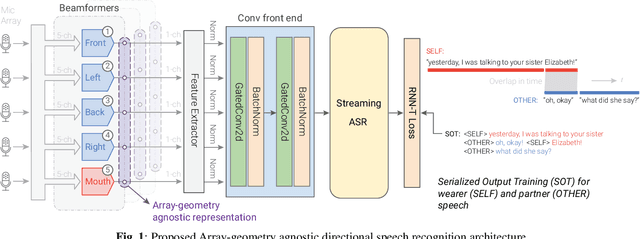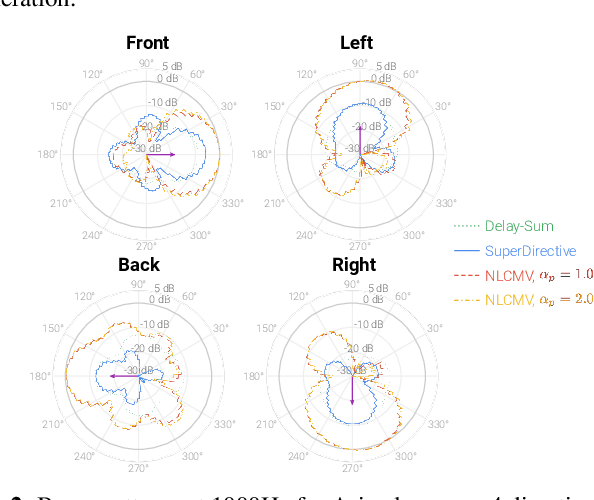AGADIR: Towards Array-Geometry Agnostic Directional Speech Recognition
Paper and Code
Jan 18, 2024



Wearable devices like smart glasses are approaching the compute capability to seamlessly generate real-time closed captions for live conversations. We build on our recently introduced directional Automatic Speech Recognition (ASR) for smart glasses that have microphone arrays, which fuses multi-channel ASR with serialized output training, for wearer/conversation-partner disambiguation as well as suppression of cross-talk speech from non-target directions and noise. When ASR work is part of a broader system-development process, one may be faced with changes to microphone geometries as system development progresses. This paper aims to make multi-channel ASR insensitive to limited variations of microphone-array geometry. We show that a model trained on multiple similar geometries is largely agnostic and generalizes well to new geometries, as long as they are not too different. Furthermore, training the model this way improves accuracy for seen geometries by 15 to 28\% relative. Lastly, we refine the beamforming by a novel Non-Linearly Constrained Minimum Variance criterion.
 Add to Chrome
Add to Chrome Add to Firefox
Add to Firefox Add to Edge
Add to Edge